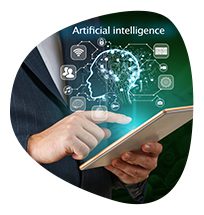Heading: The Evolution and Importance of IT Services in a Digital Age
Heading: The Evolution and Importance of IT Services in a Digital Age

Table of Contents
In today’s fast-paced and interconnected world, Information Technology (IT) services have emerged as a cornerstone of modern business operations. From small startups to multinational corporations, IT services play a pivotal role in enabling businesses to innovate, optimize processes, and stay competitive. This article delves into the evolution of IT services and their profound importance in the digital age.
The Evolution of IT Services: From Support to Strategic Enabler
The journey of IT services can be traced back to the early days of computing when they were primarily focused on providing technical support and troubleshooting for hardware and software issues. Over the years, the scope of IT services expanded as technology advanced. Services such as network management, system administration, and data storage became essential for maintaining smooth operations.
However, it was the advent of the internet and the rapid growth of digital technologies that transformed IT services from mere support functions to strategic enablers. Businesses recognized the potential of IT to drive innovation, enhance customer experiences, and streamline operations. This shift led to the emergence of services like cloud computing, cybersecurity, data analytics, and artificial intelligence.
The Role of IT Services in the Digital Age:
-
Digital Transformation:
- IT services are integral to the process of digital transformation, where businesses leverage technology to fundamentally change how they operate and deliver value to customers. Cloud services, for instance, allow companies to scale resources according to demand and embrace a flexible operational model.
-
Data Management and Analytics:
- In an era where data is often referred to as the “new oil,” IT services related to data management, storage, and analysis have become indispensable. Businesses can extract valuable insights from data, aiding in informed decision-making and predicting market trends.
-
Cybersecurity:
- As the reliance on digital infrastructure increases, so do the risks associated with cyber threats. IT services specializing in cybersecurity are crucial for safeguarding sensitive information, maintaining customer trust, and avoiding potential breaches.
-
Remote Work and Collaboration:
- The COVID-19 pandemic accelerated the adoption of remote work. IT services enable remote collaboration tools, virtual private networks (VPNs), and secure communication platforms, ensuring business continuity even in challenging times.
-
Customer Experience Enhancement:
- IT services play a pivotal role in creating seamless and personalized customer experiences. From e-commerce platforms to customer relationship management (CRM) systems, technology enables businesses to understand, engage, and cater to customer preferences effectively.
The Future of IT Services: Navigating Disruption and Innovation
Looking ahead, the landscape of IT services is poised for further transformation. Emerging technologies such as 5G, edge computing, quantum computing, and the Internet of Things (IoT) are reshaping the way businesses operate. IT service providers need to stay agile and embrace these advancements to offer innovative solutions that address evolving needs.
As technology continues to evolve, ethical considerations surrounding data privacy, AI ethics, and the responsible use of technology will gain prominence. IT service providers must balance innovation with responsible practices to build trust and credibility.
1. Disruption through Emerging Technologies:
The future of IT services is being disrupteby emerging technologies that are reshaping the way businesses operate. Here are a few key disruptors:
-
5G Connectivity:
- The rollout of 5G networks is poise to revolutionize connectivity, enabling faster data speeds, low latency, and massive device connectivity. IT service providers will need to adapt to the demands of this high-speed, data-intensive environment.
-
Edge Computing:
- Edge computing brings data processing closer to the source of data generation, reducing latency and enabling real-time decision-making. IT service will need to facilitate seamless integration between centralized cloud systems and edge devices.
-
Quantum Computing:
- Quantum computers have the potential to solve complex problems that are currently beyond the capabilities of classical computers. While still in its infancy, quantum computing could disrupt various industries, including cryptography and optimization.
-
Internet of Things (IoT)
- : The proliferation of IoT devices is generating vast amounts of data, requiring sophisticated IT services to manage, analyze, and secure this data effectively.
Conclusion
In conclusion, IT service have come a long way from their humble beginnings as technical support functions. In today’s digital age, they are the driving force behind business innovation, operational efficiency, and customer-centricity. As technology continues to advance, businesses that harness the full potential of IT service will be well-equippe to navigate disruption, capitalize on opportunities, and thrive in an increasingly interconnecte.
in this articles visit in onthewaycomputers.




